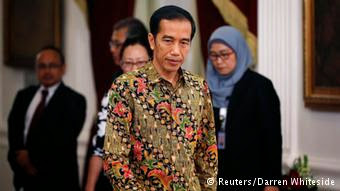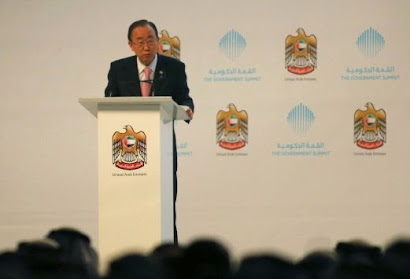Related
articles
- Hand-Carved Skulls to Be Returned to Indonesia
- Sociologist Ordered to Pay Dayaks in Gongs for Sex Insult
- Certified Logging no Match for Indonesia’s Timber ‘Mafia’
As the
International Day of the World’s Indigenous People was celebrated this week,
the United Nations called on all countries to recognize the rights of
indigenous peoples through this year’s theme, “Indigenous designs: celebrating
stories and cultures, crafting our own future.”
 |
| Handbags and textiles made by Kalimantan people. (JG Photo: Courtesy of Ng Swan Ti) |
Indigenous
peoples are defined by the United Nations as nondominant ethnic groups with a
claim to historical continuity in their ancestral lands, who often suffer
discrimination and marginalization by groups who have occupied their lands
through invasion, colonial rule or political dominance.
There are
around 5,000 recognized indigenous groups around the world, whose members make
up around 5 percent of the world’s population.
In
Indonesia, the Dayak and Bajau peoples of Kalimantan are included under this
definition.
“[Indigenous
peoples] have their land but are often displaced. They end up at the very
bottom of society without any skills,” Michele Zaccheo, director of the United
Nations Information Center in Jakarta, said at a video screening and discussion
at the Goethe-Institut on Tuesday.
Zaccheo
shared a message from UN Secretary General Ban Ki-moon at the event, saying
that indigenous peoples “face many challenges in maintaining their identity,
traditions and customs, and their cultural contributions are at times exploited
and commercialized, with little or no recognition.”
“We must
work harder to recognize and strengthen their right to control their
intellectual property, and help them to protect, develop and be compensated
fairly for the cultural heritage and traditional knowledge that is ultimately
of benefit to us all,” the secretary general’s message read.
A 30-minute
documentary called “Kalimantan’s Craft: Harmony of Culture and Nature,” by
filmmaker Nanang Sujana, was screened at the UN headquarters in New York and in
all member countries around the world to mark the international day of
recognition.
The film
shows the life of the indigenous Dayak people in Kalimantan, who depend on the
natural resources around them for their livelihoods. With skills that have been
passed down from generation to generation, the Dayak people produce artistic
crafts including woven baskets, handbags and textiles, all using natural
materials.
Agus
Sardjono, an expert on intellectual property from the University of Indonesia,
said a community’s rights to its own creative products should be recognized.
“When
creating a product, indigenous people in villages don’t actually think about
intellectual property. But when other people run a business selling similar
products using their designs and make a profit, that’s when they begin to think
about it,” Agus said.
Often, he added,
people outside the community care more about this problem than the indigenous
people.
“It’s
people in general, like us, who are very concerned when we see certain people
take advantage of a culture’s creativity, but without sharing the benefits,” Agus
said.
Yayasan
Dian Tama, a West Kalimantan-based foundation, has been working with the
indigenous Dayak people since 1994 to help make sure they benefit financially
from the products of their labor.
“Basically
they have the skills. So what we do is provide them with training on how to
make better products, set up standards to meet the demands of the market, and
also help maintain quality control,” said Tri “Alty” Renya Altaria Siswanto, an
adviser for the foundation. “At the same time, we also teach them how to
preserve the natural sources from which they take the materials.”
Alty said
the organization employed a “punishment and reward” system to encourage the
Dayak people to create high-quality products. This, she said, is a way to
appreciate the knowledge and skills of the indigenous people themselves.
“We told
them that the better the quality, the better the prices, and vice versa,” she
said. “And they are now able to produce high-quality products, sold under the
brand Borneo Chic. We are also currently participating in an exhibition at
Harrods [department store] in the UK.”
Alty said,
however, that the production of better-quality products had not changed the
people’s economic situation, because they still needed to improve their
marketing.
“But we
have achieved a very important thing, which is getting [the Dayak people’s]
traditional knowledge and creative rights recognized by people outside their
community,” she said.
Related Article:






No comments:
Post a Comment